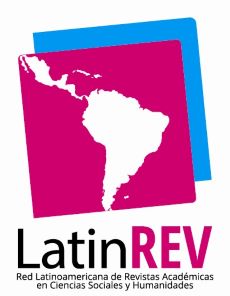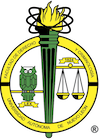The homologation of professional competence in the field of alternative dispute settlement mechanisms
DOI:
https://doi.org/10.29105/msc1.1-8Keywords:
Professional Competence, Discipline, Approved, Facilitator, Alternative Dispute Resolution MechanismsAbstract
Professional competence is currently one of the central issues in the context of any work activity, since
within the constant changes of the social context, needs arise that demand quality of specialized
training, favorable conditions that obviously favor the field of Alternative Mechanisms of Dispute
Resolution, referring specifically to the facilitator’s intervention, which is a recognized figure even in
the legislation. This is concerned with leading the parties in conflict to the creation of solutions integrating
for the activity indicated the theoretical and practical knowledge that the law establishes, at
the same time as adhering to their own experience, competence, and discipline. This article reflects
on the need not to lose focus on the homologation of the professional competence of those who in
their duty to be and do contribute to the resolution of disputes from a perspective of professional
recognition. Likewise, proposals are made in relation to disciplinary competence, given the diverse
professions that are involved and that assume the role of facilitator, which if not addressed under
outlined capacities, will generate discrepancies with unwanted results, which is highlighted in the
same on the importance of intervening in these procedures from the professional formality, and in a
plane of homologated and certified knowledge.
Downloads
References
AIGORRI, J.; MARTÍNEZ, P.; MONTERRUBIO, E. (2006). El reconocimiento oficial del saber profesional obtenido por la experiencia. Revista Europea de Formación Profesional. CEDEFOP, núm. 37.
BENAVIDES, B. (2009). Contexto social de la profesión. México, D.F. Ed. Patria.
BERTRAND, O. (2000). Evaluación y certificación de competencias y cualificaciones profesionales. Madrid: OEI.
BUNK, G. P. (1994), La transmisión de competencias en la formación y perfeccionamiento profesionales de la RFA, Revista Europea de Formación Profesional, (1), 8-14,
CAMELLAS, M". J. "Las competencias profesionales de la formación en Psicopedagogía: objetivo fundamental de la docencia universitaria". Comunicación del I Congreso Internacional: Docencia Universitaria e Innovación. Barcelona, 26-28 Junio 2000.
DE PINA, Rafael, De Pina Vara, Rafael (2013), Diccionario de Derecho, Porrúa, México.
DOGAN, M., & PAHRE, R. (1993). Las nuevas ciencias sociales: la marginalidad creadora.México: Grijalbo.
GORJÓN GÓMEZ, F. (2017). Mediación, su valor intangible y efectos operativos. México: Tirant Lo Blanch.
GORJÓN GÓMEZ, F. (2018). Mediación, su valor intangible y efectos operativos. México:Tirant Lo Blanch.
HORTAL, Augusto (2002), Ética General de las Profesiones, Desclée, Bilbao, España,.
PICARDO JOAO, Oscar; ESCOBAR BAÑO, Juan Carlos (2003). Diccionario Enciclopédico de Ciencias de la Educación, Barcelona: CEAC.
RUIZ, G. (2008). Reflexiones y definiciones desde la teoría biológica del conocimiento: aprendizaje y competencia en la universidad actual. Estudios Pedagógicos 34: 199-214.
TAMAYO, M. (2006). La Interdisciplinariedad. Colombia: ICESI.
TUNNING, Educational Structures in Europe. Final Report. Phase One, (2003)University of Deusto, University of Groningen,.
LEGISLACIÓN
Constitución Política de los Estados Unidos Mexicanos.
Constitución Política del Estado de Nuevo León.
Ley Nacional de MASC en Materia Penal señala que el órgano es “la Institución especializada en Mecanismos Alternativos de Solución de Controversias en materia penal de la Federación o de las entidades federativas
Ley de Mecanismos Alternativos para la Solución de Controversias del Estado de Nuevo León.
Downloads
Published
How to Cite
Issue
Section
License
Copyright (c) 2021 Journal MSC Métodos de Solución de Conflictos. Revista Internacional de Investigación Científica y Práctica en MSC

This work is licensed under a Creative Commons Attribution-NonCommercial 4.0 International License.
Los autores/as que publiquen en esta revista aceptan las siguientes condiciones:
a. Los autores/as conservarán sus derechos de autor y garantizarán a la revista el derecho de primera publicación de su obra, el cual estará simultáneamente sujeto a la Licencia Creative Commons Atribución-NoComercial 4.0 Internacional. que permite a terceros compartir la obra siempre que se indique su autor y su primera publicación esta revista.
b. Los autores/as pueden realizar otros acuerdos contractuales independientes y adicionales para la distribución no exclusiva de la versión del artículo publicado en esta revista (p. ej., incluirlo en un repositorio institucional o publicarlo en un libro) siempre que indiquen claramente que el trabajo se publicó por primera vez en MSC Métodos de Solución de Conflictos.
c. Se permite y recomienda a los autores/as a publicar su trabajo en Internet (por ejemplo en páginas institucionales o personales) posterior al proceso de revisión y publicación, ya que puede conducir a intercambios productivos y a una mayor y más rápida difusión del trabajo publicado (Véase El efecto del acceso abierto).







 MSC Métodos de Solución de Conflictos Vol. 5 Núm. 9, Julio-Diciembre 2025, es una publicación semestral editada por la Universidad Autónoma de Nuevo León, a través de la Facultad de Derecho y Criminología. Dirección de la publicación: Av. Universidad s/n Cd. Universitaria C.P. 66455, San Nicolás de los Garza, Nuevo León, México. revistamsc.uanl.mx, revistamsc@uanl.mx. Editor responsable: Dr. Francisco Javier Gorjón Gómez. Reserva de Derechos al Uso Exclusivo núm. 04-2023-110310161600-102 ISSN 2992-8370, ambos otorgados por el Instituto Nacional del Derecho de Autor. Responsable de la última actualización: Dr. Paris Alejandro Cabello Tijerina, Facultad de Derecho y Criminología Av. Universidad s/n Cd. Universitaria C.P. 66451, San Nicolás de los Garza, Nuevo León, México. Fecha de la última modificación: 28 de julio de 2025.
MSC Métodos de Solución de Conflictos Vol. 5 Núm. 9, Julio-Diciembre 2025, es una publicación semestral editada por la Universidad Autónoma de Nuevo León, a través de la Facultad de Derecho y Criminología. Dirección de la publicación: Av. Universidad s/n Cd. Universitaria C.P. 66455, San Nicolás de los Garza, Nuevo León, México. revistamsc.uanl.mx, revistamsc@uanl.mx. Editor responsable: Dr. Francisco Javier Gorjón Gómez. Reserva de Derechos al Uso Exclusivo núm. 04-2023-110310161600-102 ISSN 2992-8370, ambos otorgados por el Instituto Nacional del Derecho de Autor. Responsable de la última actualización: Dr. Paris Alejandro Cabello Tijerina, Facultad de Derecho y Criminología Av. Universidad s/n Cd. Universitaria C.P. 66451, San Nicolás de los Garza, Nuevo León, México. Fecha de la última modificación: 28 de julio de 2025.